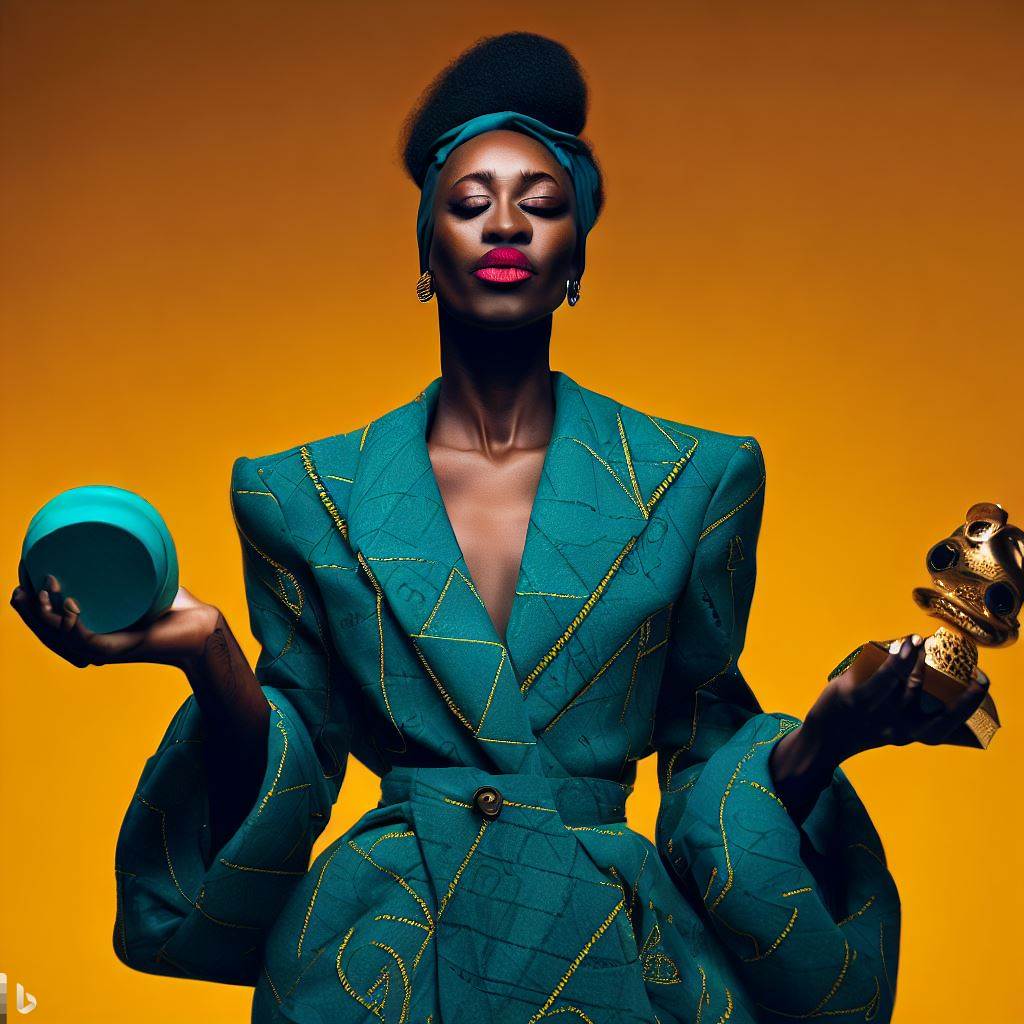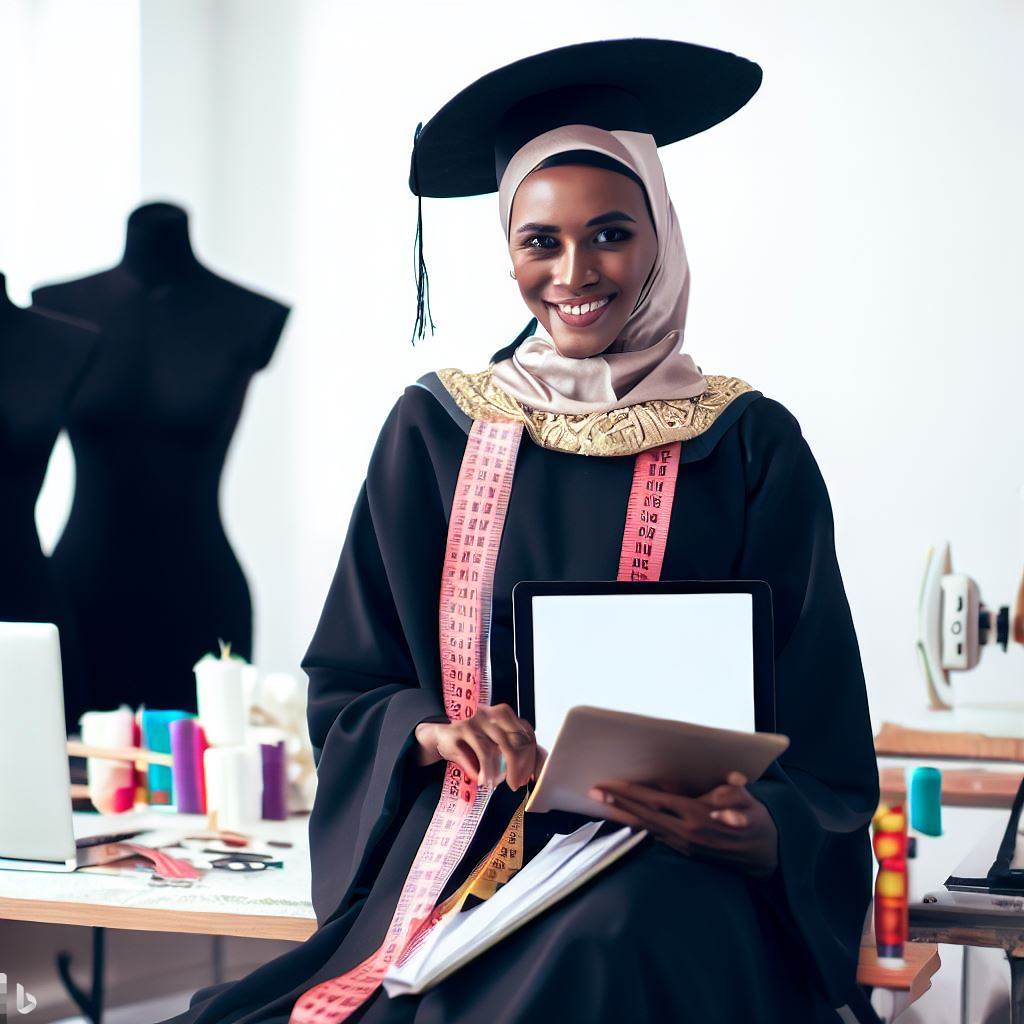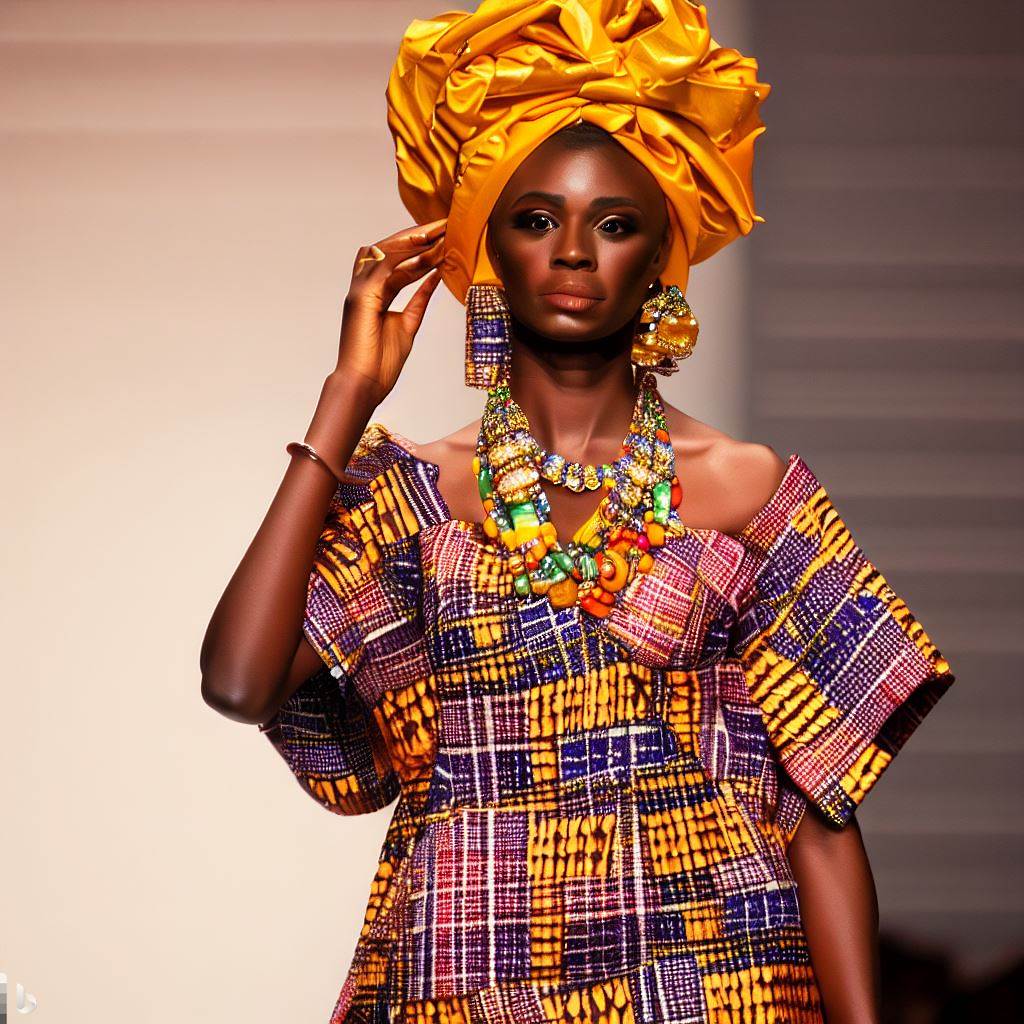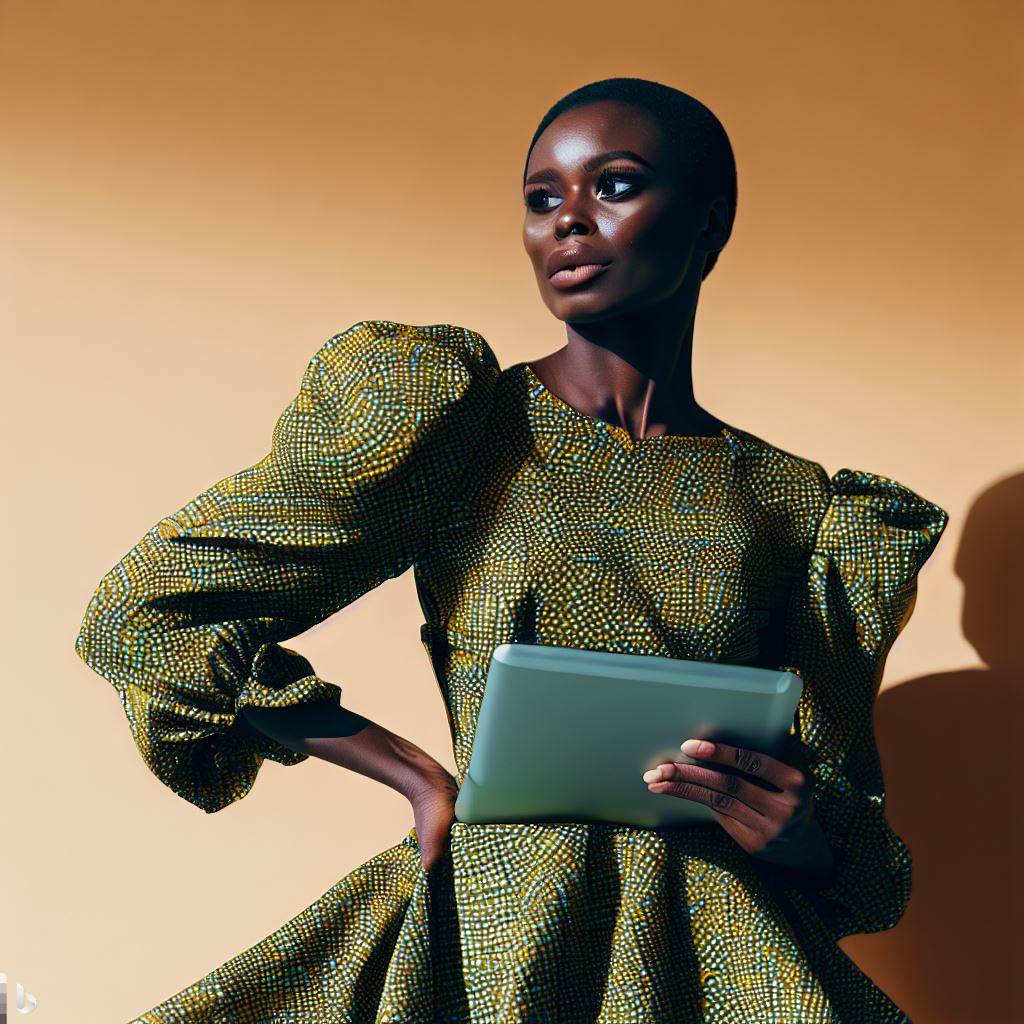Introduction to Fashion Design in Nigeria
Fashion design in Nigeria is a dynamic and cultural industry that represents the country’s rich heritage.
The Nigerian fashion industry is a thriving sector with a wide range of designers and talents.
Fashion design plays a crucial role in the country, contributing to its economy and cultural identity.
Overview of the Nigerian Fashion Industry
The Nigerian fashion industry is a vibrant and diverse sector that encompasses various segments.
From traditional attire to contemporary designs, Nigerian fashion designers blend local aesthetics with global trends.
This fusion creates unique and distinctive styles that have gained recognition both locally and internationally.
The industry is supported by fashion shows, exhibitions, and events that provide a platform for designers to showcase their creativity.
Nigerian fashion designers are known for their craftsmanship, attention to detail, and use of vibrant colors and prints.
Importance of Fashion Design in Nigeria
Fashion design plays a significant role in Nigeria’s economy, contributing to job creation and revenue generation.
The industry employs a vast number of skilled individuals, including designers, seamstresses, tailors, and artisans.
Fashion design also serves as a means of cultural expression and preservation.
Nigerian fashion designers often draw inspiration from traditional attire, incorporating elements of their heritage into contemporary designs.
This helps to promote and preserve Nigeria’s cultural identity.
Furthermore, fashion design has given Nigerian entrepreneurs opportunities to build successful businesses and brands.
Many Nigerian designers have gained global recognition, showcasing the country’s talent and creativity on an international stage.
Therefore, fashion design in Nigeria is a thriving industry that combines cultural heritage with modern trends.
It plays a crucial role in the country’s economy, cultural expression, and global recognition.
The challenges and rewards in this field make it an exciting and promising avenue for talented individuals in Nigeria.
Challenges Faced by Fashion Designers in Nigeria
- Limited access to resources and funding: Fashion designers in Nigeria often struggle to find the necessary resources, such as high-quality fabrics, sewing machines, and other tools, to create their designs.
Additionally, the lack of funding opportunities hinders their ability to invest in their businesses and expand their operations. - Lack of proper infrastructure and manufacturing facilities: The fashion industry in Nigeria lacks adequate infrastructure, including specialized factories and manufacturing facilities.
This makes it challenging for designers to produce their creations on a large scale and meet the demands of both local and international markets. - Counterfeit products and plagiarism: Nigerian fashion designers face the constant threat of counterfeit products and plagiarism.
Many individuals and companies shamelessly copy their designs and sell them at lower prices, damaging the reputations and profits of original designers.
This discourages creativity and innovation within the industry. - Limited market reach and competition: Due to various economic challenges and infrastructure deficiencies, Nigerian fashion designers often struggle to reach a wide market.
They face intense competition from both local and international brands that have greater resources, better distribution networks, and stronger marketing strategies.
This limits their growth potential and financial success.
To overcome these challenges, fashion designers in Nigeria need to develop strategies and seek support in the following ways
- Collaboration and networking: Designers can join forces and collaborate with each other, forming networks or associations to share resources, knowledge, and ideas.
This way, they can collectively address common challenges and explore opportunities for growth. - Seek funding and support: Fashion designers should actively seek funding opportunities, such as grants, loans, or sponsorships, to invest in their businesses.
They can also seek mentorship from experienced individuals or organizations in the fashion industry to gain valuable guidance and support. - Enhance infrastructure and manufacturing facilities: Government and private investors should invest in developing proper infrastructure and manufacturing facilities to support the growth of the fashion industry.
This includes establishing specialized factories for producing high-quality garments and improving transportation networks to facilitate efficient distribution. - Enforce intellectual property rights: The government should implement stricter laws and regulations to protect intellectual property rights.
This will discourage plagiarism and counterfeiting, ensuring that fashion designers can reap the rewards of their creativity and hard work. - Explore international markets: Nigerian fashion designers should explore international markets and participate in fashion shows and events abroad.
Building a global presence can help them expand their market reach and increase their chances of success.
Basically, the challenges faced by fashion designers in Nigeria, such as limited access to resources and funding, lack of proper infrastructure, counterfeit products, and limited market reach, hinder the growth and success of the industry.
However, by collaborating, seeking funding and support, improving infrastructure, enforcing intellectual property rights, and exploring international markets, Nigerian fashion designers can overcome these challenges and achieve their goals.
Read: Nollywood Sound Design: The Rise of Foley Artistry in Nigeria
Rewards of Fashion Design in Nigeria
The rewards of fashion design in Nigeria are numerous and significant.
In this section, we will explore some of the key benefits that fashion designers in Nigeria experience.
Cultural diversity and inspiration
- Nigeria’s rich cultural diversity provides immense inspiration for fashion designers.
- Traditional Nigerian attire, with its vibrant colors and unique patterns, is a constant source of creativity.
- Designers often incorporate traditional elements into their creations, blending modern and traditional styles.
- This fusion of cultures and traditions creates distinctive and globally recognized Nigerian fashion.
Growing demand for Nigerian fashion on the international stage
- Nigerian fashion has gained significant recognition and demand globally in recent years.
- International fashion enthusiasts are increasingly appreciating the unique designs and craftsmanship from Nigeria.
- Fashion shows and exhibitions showcasing Nigerian talent regularly attract international buyers and investors.
- This growing demand opens up opportunities for Nigerian designers to expand their reach and gain global recognition.
Economic empowerment and job creation
- The fashion industry in Nigeria is a vital contributor to the country’s economy.
- Numerous fashion businesses, both big and small, provide employment opportunities to a significant number of people.
- As the industry grows, more jobs are created, boosting economic empowerment for individuals and communities.
- Nigerian fashion designers play a crucial role in job creation and contributing to the overall economic development of the country.
Celebrating Nigerian identity and promoting local talent
- Nigerian fashion designers proudly celebrate their cultural identity through their creations.
- By incorporating traditional elements in their designs, they promote Nigerian cultural heritage.
- These designers act as ambassadors of Nigerian fashion, attracting attention to the country’s talent and creativity.
- Through their work, they highlight the uniqueness and beauty of Nigerian culture on a global platform.
In short, the rewards of fashion design in Nigeria are extensive and impactful.
The cultural diversity and inspiration, growing international demand, economic empowerment, and celebration of Nigerian identity all contribute to the success and growth of the industry.
Nigerian fashion designers continue to make significant strides, gaining recognition and making their mark in the global fashion scene.
Read: Skills Required for a Business Analyst Role in Nigeria

Success stories and notable Nigerian fashion designers
In recent years, Nigeria has witnessed remarkable growth in its fashion industry, with several talented designers emerging and making their mark on the global fashion scene.
These designers have not only overcome numerous challenges but have also achieved significant recognition and success, contributing to the development and growth of the Nigerian fashion industry.
Mentioning well-known designers and their contributions
One notable Nigerian fashion designer is Deola Sagoe, renowned for her innovative designs that blend traditional African prints with contemporary aesthetics.
She has been instrumental in promoting Nigerian fashion globally and has showcased her collections at prestigious fashion events.
Lisa Folawiyo, another prominent designer, has gained recognition for her unique use of Ankara fabrics and exquisite embellishments.
Her designs have been worn by international celebrities, further elevating Nigerian fashion on a global scale.
Tiffany Amber, founded by Folake Coker, has made significant contributions to the Nigerian fashion industry by creating elegant and sophisticated designs.
Coker’s brand has received international acclaim, and she has been recognized with numerous awards for her outstanding work.
Highlighting their achievements and impact on the industry
Deola Sagoe’s impact on the Nigerian fashion industry is evident through her collaborations with international brands and her participation in prestigious fashion weeks.
She has also inspired a new generation of designers to explore their African heritage in their creations.
Lisa Folawiyo’s notable achievements include showcasing her collection at New York Fashion Week and collaborating with global brands.
Her successful brand has attracted attention to the creativity and craftsmanship of Nigerian designers.
Folake Coker’s Tiffany Amber has not only gained recognition locally but has also expanded its reach to international markets.
Coker’s fashion label has been featured in major fashion publications and worn by influential figures worldwide.
The success stories of these notable Nigerian fashion designers are a testament to the immense talent and creativity present within the country.
Their achievements have helped put Nigerian fashion on the global map and have opened doors for emerging designers to showcase their skills.
With continued support and recognition, the Nigerian fashion industry is set to soar to even greater heights in the future.
Read: Understanding the Nigerian Union of TV Reporters
Strategies to overcome challenges in Nigerian fashion design
In order to overcome the challenges in Nigerian fashion design, there are several strategies that designers can implement.
These strategies include
1. Networking and collaborations within the industry
- Building connections with other designers and industry professionals can provide valuable support and resources.
- Collaborating with other designers can lead to innovative ideas and shared resources.
- Attending industry events and fashion shows can help establish connections and showcase designs.
2. Embracing technology and digital platforms for marketing and sales
- Creating a strong online presence through social media platforms and a professional website.
- Utilizing e-commerce platforms to reach a wider audience and increase sales.
- Investing in professional photography and creating visually appealing content for online marketing.
3. Seeking financial support and funding opportunities
- Applying for grants and funding programs specifically designed for fashion designers.
- Seeking partnerships with investors or sponsors who believe in the designer’s potential.
- Establishing a solid business plan that outlines financial needs and opportunities for growth.
4. Strengthening intellectual property rights and discouraging plagiarism
- Registering designs and trademarks to protect intellectual property.
- Educating clients and the public about the importance of supporting original designs.
- Taking legal action against plagiarism and enforcing copyright laws.
Implementing these strategies can help Nigerian fashion designers overcome challenges and achieve success in the industry.
By building networks, embracing technology, seeking financial support, and protecting intellectual property, designers can enhance their chances of thriving in the competitive fashion market.
Read: Animation Education: Top Courses in Nigeria
Conclusion
We have discussed the challenges and rewards of fashion design in Nigeria.
We have seen that while there are obstacles such as lack of infrastructure and limited resources, there are also opportunities for growth and success.
The rewards of this industry include recognition on a global scale and the potential for financial stability.
The future of fashion design in Nigeria looks promising, with the industry gaining recognition and support both locally and internationally.
Aspiring fashion designers should be encouraged to pursue their dreams, as their creativity and talent can contribute to the growth and development of the industry.
With determination, hard work, and a passion for fashion, individuals can overcome the challenges they may face and achieve their goals in the fashion design field.




